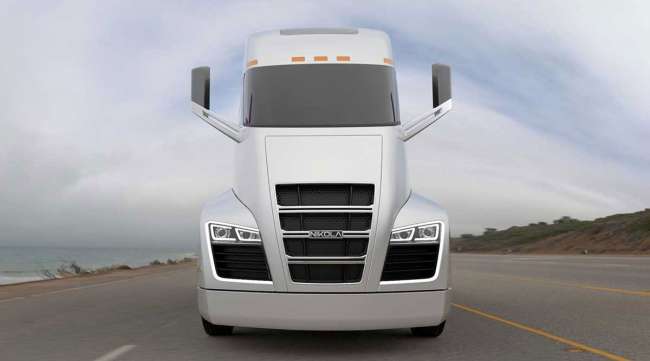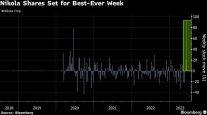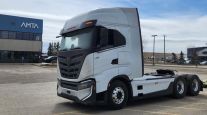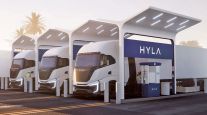ValueAct Bets on Success of Hydrogen Fuel With Nikola Motor

ValueAct Capital Management has built a new position in Nikola Motor Co., a closely held hydrogen fuel cell trucking company seeking to raise $1.5 billion to expand in the U.S., starting on the West Coast.
The firm invested $30 million to $40 million in Nikola prior to that fundraising campaign, according to ValueAct CEO Jeff Ubben. The precise stake is uncertain, though well less than 5%, he said. San Francisco-based ValueAct purchased shares from Nikola’s CEO along with some early investors.
NIKOLA TWO: New Class 8 hydrogen fuel cell truck unveiled
The money came from the ValueAct Spring Fund, Ubben’s $350 million pool focused on environmental and social investments. Ubben joined Nikola’s board as part of the investment.
“This idea of a really, truly sustainable business that delivers savings today and has a tremendous social and environmental benefit is the next Facebook,” Ubben said in an interview. “These are the next mega-plays.”
Ubben said he cold-called Nikola’s founder and CEO Trevor Milton about a year-and-a-half ago because he became interested in the hydrogen fuel cell industry and the potentially disruptive innovation Nikola might offer.
“With Nikola, the first move is a game-over move,” Ubben said. “Volvo or Daimler or BMW are not going to overthrow our fueling stations. They’re going to use them.”
Startup Nikola bets hydrogen will finally break through with big rigs https://t.co/kpO8uNm2XJ pic.twitter.com/XLwK9Boxtw — Forbes (@Forbes) April 15, 2019
Nikola has the potential to disrupt the trucking, rail and air cargo businesses by producing fuel that is about 20% to 30% cheaper than diesel, Ubben said. Its technology uses solar power to split water into hydrogen that can be used for trucking fuel.
Nikola will unveil its new truck and three other products this week at an investor meeting that starts April 16 in Scottsdale, Ariz.
Nikola has about $14 billion worth of commitments from its customers.
Last May, Anheuser-Busch InBev NV ordered 800 tractor-trailers from the company as it seeks to convert its long-haul delivery fleet to vehicles powered by renewable sources by 2025. Nikola will produce those trucks and get a cut from the fuel it sells them.
Nikola, working with Morgan Stanley, aims to raise $1.5 billion over the next three months, Milton said. The equity raise should value the company at $3 billion to $4 billion, he said.
It intends to use the funds to build up its production base and to extend its network of charging stations. Its goal is to build 22 charging stations across the West Coast by 2020 before scaling up to 700 stations throughout the U.S. by 2028.
Each station will be able to handle up to 160 trucks, with the potential to expand, Milton said.
Nikola plans to produce a couple thousand trucks in its first year and intends to grow production slowly, Milton said.
Having Ubben on the board will help the company as it scales up, he said.
“It’s going to be nice having someone like him here to help navigate the waters,” Milton said. “I’ve never been in the world of raising billions. And when you get into that, there’s a lot of mistakes you can make that will cripple you. I’ve been leaning on him a lot for advice.”
Building the trucks itself along with the fueling stations makes a lot of financial sense, Milton said.
That will help the company to collect leasing revenue and also will entitle it to share in the value of their fuel. Its trucks will run at a cost equivalent to about 95 cents per mile, he said. That compares to the roughly $1.15 per-mile that it costs to run a truck on diesel fuel, he said.
The cost of a driver adds another 70 cents for diesel and 50 cents for Nikola.
Eventually, Nikola aims to have autonomous trucks with no drivers, further reducing costs.
“Ultimately, if you don’t have a Nikola truck, you’ll go bankrupt,” Milton said.




